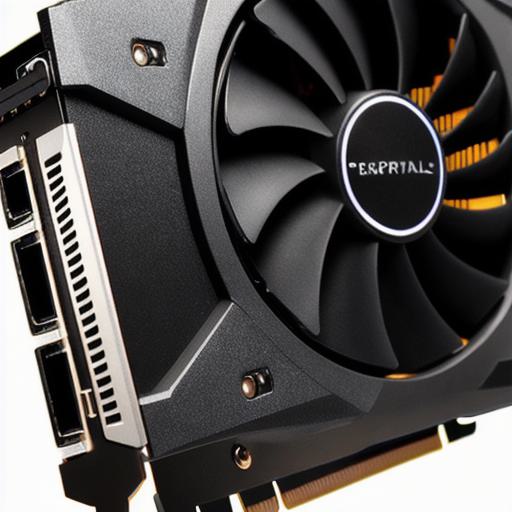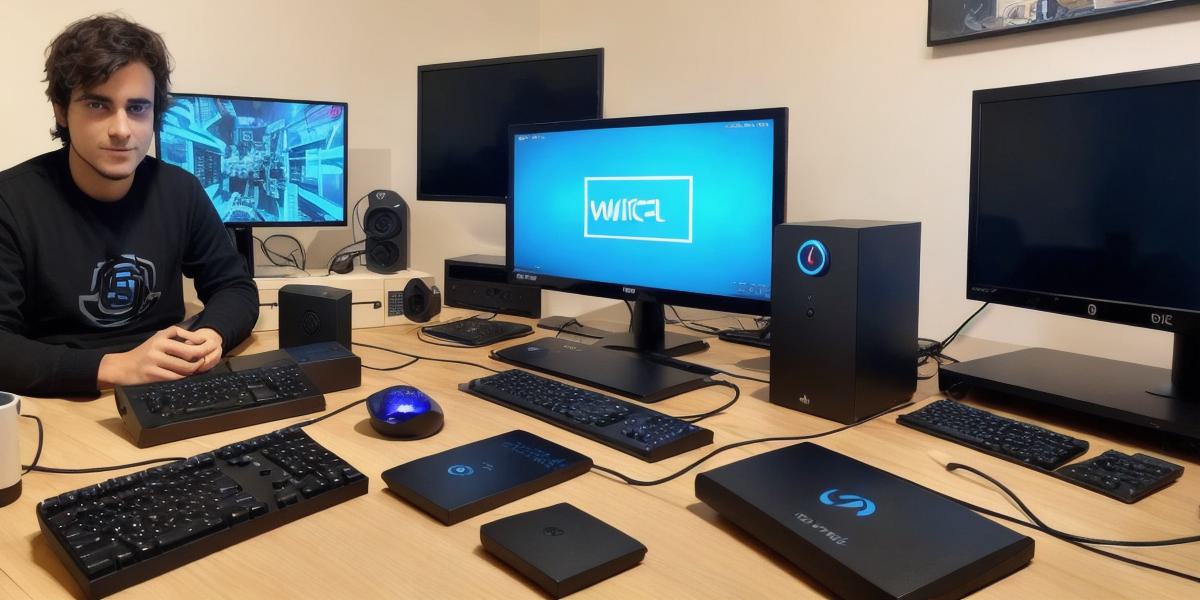Introduction:
Game development is a highly competitive field, and having the right hardware can make all the difference. In this guide, we will take a closer look at the best PC specifications for game development, including graphics cards, processors, and storage options. We will also discuss the importance of other factors such as RAM, power consumption, and cooling systems.

Graphics Cards:
Graphics cards are one of the most important components in game development. They determine the quality and realism of the graphics, which can have a significant impact on player experience. There are several types of graphics cards available, including NVIDIA and AMD. The latest generation of graphics cards, such as the NVIDIA GeForce RTX 3090 and the AMD Radeon VII, offer exceptional performance for high-end games. However, these cards can be quite expensive, so it’s important to consider your budget when choosing a graphics card.
Processors:
The processor is another critical component in game development. It determines the speed at which the computer can execute instructions and handle multiple tasks simultaneously. There are several types of processors available, including Intel and AMD. The latest generation of processors, such as the Intel Core i9-10900K and the AMD Ryzen 9 5900X, offer excellent performance for high-end games. However, these processors can also be quite expensive, so it’s important to consider your budget when choosing a processor.
Storage Options:
Storage options are also important in game development. There are several types of storage devices available, including hard drives (HDD) and solid-state drives (SSD). HDDs are less expensive but slower than SSDs. SSDs, on the other hand, offer faster read and write speeds, which can significantly improve load times and overall performance. For game development, we recommend using an SSD for your operating system and any other frequently used files, and an HDD for larger files such as textures and audio.
RAM:
RAM is another critical component in game development. It determines how much data the computer can store in memory at once, which affects the speed at which it can access and process information. The more RAM you have, the faster your computer will be able to handle complex tasks such as rendering graphics and managing multiple processes simultaneously. We recommend using at least 16GB of RAM for game development, but 32GB or even 64GB is ideal for high-end games.
Power Consumption:
Power consumption is also an important factor to consider when choosing a PC for game development. High-end components can consume a lot of power, which can be costly and potentially damaging to the environment. To address this issue, many modern computers use power-saving features such as automatic shutdown and sleep mode. We recommend choosing a computer that is energy efficient and has low power consumption.
Cooling Systems:
Finally, cooling systems are essential for preventing overheating in PCs used for game development. High-end components generate a lot of heat, which can damage the hardware and reduce its lifespan. To prevent this, we recommend using a computer with adequate ventilation and a high-quality cooling system such as a liquid cooler or a high-speed fan.
Case Studies:
One example of a PC that is well-suited for game development is the ASUS ROG Strix Zephyrus G14. This laptop has an AMD Ryzen 9 processor, an NVIDIA GeForce RTX 2060 graphics card, and 16GB of RAM. It also has a high-quality cooling system that uses a liquid metal compound to dissipate heat. The ASUS ROG Strix Zephyrus G14 is lightweight and portable, making it an ideal choice for game developers who need to work on the go.
Another example is the Dell Precision 7920 Tower. This desktop has an Intel Core i9-10900K processor, an NVIDIA GeForce RTX 3090 graphics card, and 64GB of RAM. It also has a high-quality cooling system that uses liquid metal compound to dissipate heat. The Dell Precision 7920 Tower is designed for professional use, making it an excellent choice for game development teams.
FAQs:
Q: What is the best graphics card for game development?
A: The best graphics card for game development depends on your budget and the requirements of the game you are developing. However, the latest generation of graphics cards, such as the NVIDIA GeForce RTX 3090 and the AMD Radeon VII, offer exceptional performance for high-end games.
